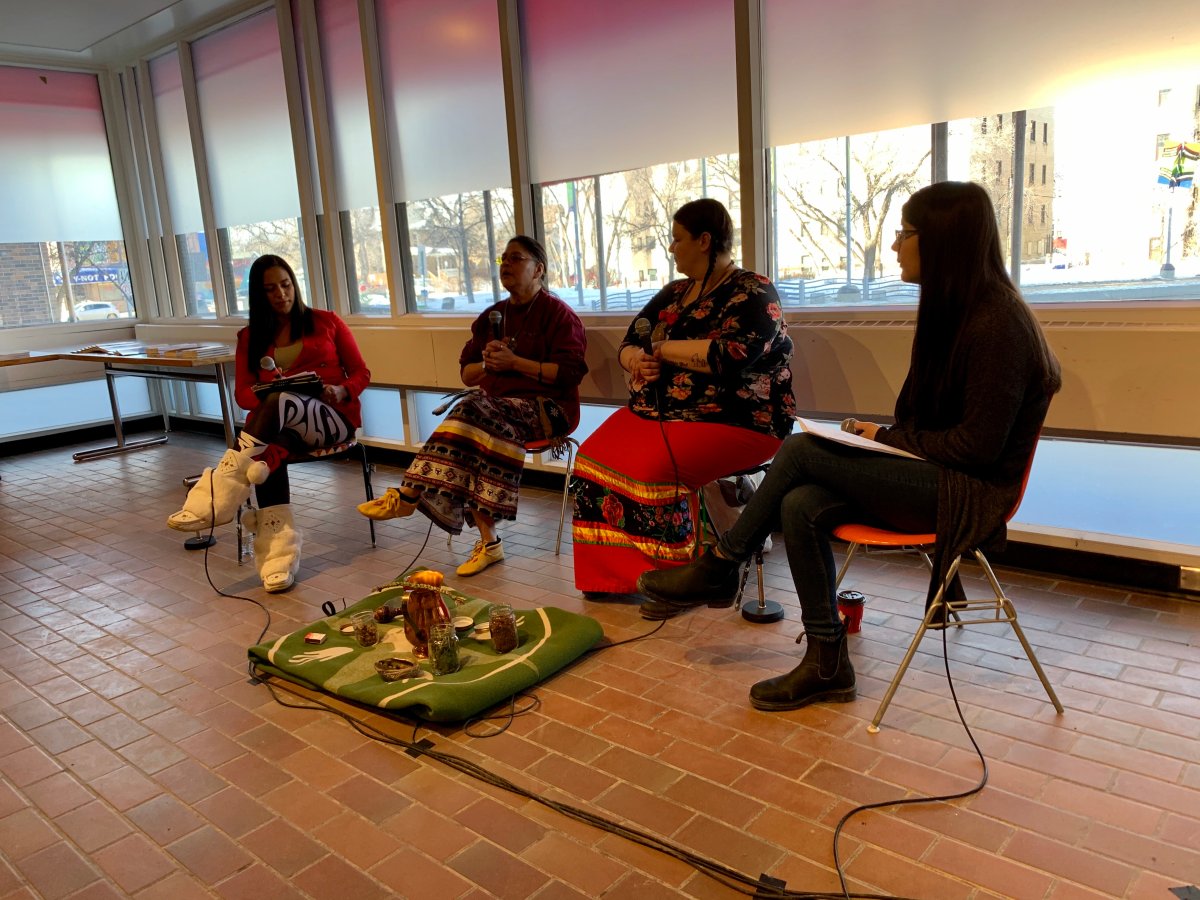A conversation on Indigenous rights was held at the University of Winnipeg on Saturday, as countrywide protests in support of Wet’suwet’en Nation continue.

Booth University College student Krystalyn Munroe organized the event
“I think it’s important for Indigenous voices to be heard and to be given priority over issues that affect them,” Munroe said.
The panel discussion, called Wet’suwet’en Strong, went over a number of topics including UNDRIP, Indigenous Sovereignty, Treaties and Indian Act.
“I want people to realize the importance of listening to Indigenous voices and understand why we are fighting to be recognized,” Munroe said.
Panelist Jolene Wilson said it’s important for a diverse group of people to gather and discuss important topics, such as the Coastal GasLink LNG pipeline project in northern British Columbia.
“It’s really, really important to me that people understand that this is not about oil and gas, this is not about this pipeline,” Wilson said.
“What it is about is protecting the future, protecting the land for the future.”
- Life in the forest: How Stanley Park’s longest resident survived a changing landscape
- Bird flu risk to humans an ‘enormous concern,’ WHO says. Here’s what to know
- Mental health support still lacking 4 years after mass shooting: Nova Scotia mayor
- Buzz kill? Gen Z less interested in coffee than older Canadians, survey shows
Prime Minister Justin Trudeau said Friday the time has come to end the blockades that have shut down railroads across the country for two weeks.
The blockades are responses by Indigenous people and supporters to a move by the RCMP to clear protesters who had been blocking construction of the Coastal GasLink pipeline near Houston, B.C.
The $6.6-billion Coastal GasLink project is meant to carry natural gas from northeastern B.C. to Kitimat.
The company has signed benefits agreements with all 20 elected Indigenous councils along the route.
But hereditary chiefs who oppose the project say elected councils only have jurisdiction over First Nations reserves. The hereditary chiefs claim authority over rights and title to land that was never covered by treaty.









Comments